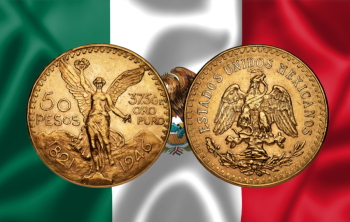
In a world marked by increasing geopolitical and financial turbulence, the management of gold reserves is crucial. In 2023, central banks accumulated 1,037 tons of gold, marking the second-highest annual purchase volume, just behind the record of 1,082 tons in 2022.
Purchase Intentions and Motivations
According to the 2024 survey, around 29% of central banks plan to increase their gold reserves in the next twelve months. The main motivations include the need to rebalance reserves to optimal strategic levels, national gold production, and growing concerns over financial risks, including potential crises and rising inflation.
Geopolitical and Macroeconomic Context
Persistent geopolitical tensions, such as conflicts in the Middle East, the prolonged war in Ukraine, and tensions between the United States and China, continue to influence reserve management decisions. Although global inflation has shown signs of cooling, economic recovery remains uneven, and financial vulnerabilities are high. Interest rates, inflationary pressures, and geopolitical instability remain key factors in central bank strategies.
Outlook on the US Dollar and Gold
The survey reveals a continued decline in the share of the US dollar in global reserves. Approximately 62% of respondents anticipate a reduction in the dollar’s share over the next five years, a trend particularly pronounced among banks in emerging and developing markets. Simultaneously, 69% of respondents believe that the share of gold in global reserves will increase in the next five years, a significant rise from 62% in 2023 and 46% in 2022.
Composition of Total Reserves
Reasons for Holding Gold
This year, 83% of central banks hold gold in their reserves, mainly due to its role as a “long-term safe haven/inflation hedge” (88%), its “performance in times of crisis” (82%), its effectiveness as a “portfolio diversification tool” (75%), and the absence of default risk (72%). These motivations indicate a shift from the historical importance of gold, now seen as a fifth priority.
Management of Gold Reserves
Most central banks continue to manage their gold reserves separately from other assets, although this practice has declined from 83% to 67% this year. The reasons cited for this separate treatment include gold's historical status and its strategic role. London’s “Good Delivery” bars remain the standard for physical gold, with an increase in the number of banks seeking to upgrade their reserves to these standards.
Storage and Active Management
Domestic gold storage has slightly increased, with 41% of respondents opting for this solution. The Bank of England remains the most popular storage location. The survey also shows an increase in the active management of gold reserves, with 37% of central banks now actively managing their gold reserves. The primary goal of this active management is to improve returns.
Conclusion
The interest of central banks in gold remains robust, supported by record purchases and ongoing concerns over geopolitical and macroeconomic conditions. Banks in emerging markets, in particular, continue to value gold as a means of hedging against financial and geopolitical risks, while confidence in the continued dominance of the US dollar is waning. In this constantly evolving context, demand for gold by central banks is expected to remain high.




